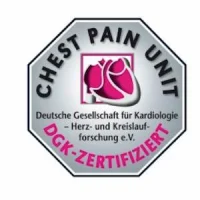Using data from the PROMISE trial involving more than 10,000 people with stable chest pain, researchers have developed a web-based tool that can accurately predict which patients are likely to have normal non-invasive tests and remain free of cardiac events. Their work is reported in JAMA Cardiology. The tool can be found at http://www.promiserisktools.com
In the U.S., millions of stress tests are performed every year and many of them are normal. "We thought that if we could predict the outcome of these tests by using information we already had from the patient before the test, we could potentially save the health care system money and save our patients time and worry," explained senior investigator James Udelson, MD, Chief of the Division of Cardiology at Tufts Medical Center.
Dr. Udelson and colleagues analysed data from the PROMISE trial (Prospective Multicenter Imaging Study for Evaluation of Chest Pain). This 2015 clinical trial included patients who had no known coronary artery disease (CAD) but who reported chest pain or equivalent symptoms to their physician and were referred for non-invasive testing to assess for the presence of CAD. Patients were randomised to have either an exercise stress test (often with an imaging study of heart blood flow or function) or a CT scan of the coronary arteries. The results showed that about 25 percent of non-invasive cardiac tests may be safely deferred.
"This set up the question, how can we predict who these people with minimal risk of CAD will be? If we could do so, perhaps the patient and physician together could decide that the testing is not needed," Dr. Udelson said. His team took data from the PROMISE trial and developed the risk prediction tool using 10 clinical variables that are commonly available to a physician during an evaluation.
The variables used to predict minimal risk in the tool are: younger age; female sex; racial or ethnic minority; no history of hypertension, diabetes, dyslipidaemia or family history of premature CAD; never smoking; symptoms unrelated to physical exertion or stress; and higher high-density lipoprotein (HDL) cholesterol.
Source: Tufts Medical Center
Image Credit: Pixabay
Latest Articles
chest pain, PROMISE trial, web-based tool, non-invasive tests, cardiac events.
Using data from the PROMISE trial involving more than 10,000 people with stable chest pain, researchers have developed a web-based tool that can accurately predict which patients are likely to have normal non-invasive tests and remain free of cardiac even










